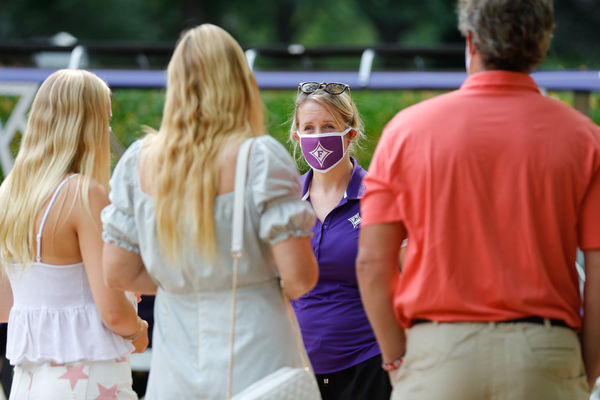More than a month into the semester, most students have adjusted to Furman’s new rules regarding the coronavirus. The university has spared no expense in plastering the entire campus with posters, stickers and signs that give us daily reminders to wear masks and social distance. Furman seems adamant about enforcing these rules from top to bottom. Something as simple as having a friend from Clark Murphy visit you in South Housing could potentially result in you and your friend packing your bags to go home.
Despite the restrictions on nearly every other aspect of life at Furman, University Admissions emailed all of its Admissions Ambassadors and Mosaic members on Friday Sept. 25 to announce its intention to “re-open campus for modified student-led tours for applicants.” The email specified that one high school senior and up to two family members will be allowed to take an outdoor, socially-distanced tour of campus after submitting two sets of health screening questions, one prior to their visit and one upon arriving on campus. Although this policy is reasonable, it is also clearly hypocritical when considering Furman's approach to COVID-19 more broadly.
First, it seems a bit odd that the university will allow people from around the country to visit despite prohibiting the greater Greenville community from entering campus. Since Furman loves to boast about how much they do for the local community, one might think that they would allow the community members that they supposedly care so much for to at least walk around the lake, assuming they follow the same rules as everyone else on campus.
The new policy from Admissions looks even worse when one considers all the limitations that enrolled students who live on campus already face. Does the university have such little trust in its students, despite the tests that we have done, the daily questions we answer, and the proven low infection rate we have shown? It is an obvious double standard that the university required sophomores and juniors to get tested at least once before returning to campus, while future visitors are seemingly exempt from this mandate. Does the administration actually have faith that these “health screening questions” will weed out those who could potentially ruin the low infection rate we have managed to maintain on campus? Surely someone answering no to an online questionnaire is just as good as being tested for the virus, right?
At heart, the announcement of this return to in-person tours is not insidious or even necessarily wrong, but it does clearly show where Furman’s priorities lie: in the financials. They have already gotten our deposit and at least a semester’s worth of tuition and housing fees from us, so we are locked into playing by their rules. With our investment guaranteed, they must pivot and seek out the next potential source of tuition—applicants. Furman needs the next admissions class to be lucrative, and therefore the university will do whatever it can to secure that windfall. In other words, Furman is far more concerned about its financial bottom line than its current students and their experience.
This is not to say that these new rules should be completely abolished. Instead, there should be one set of rules that apply to all people that enter the gates, whether they be students, faculty, visitors, or alumni. The administration either needs to ease up on their students or tighten their policy towards visitors to reflect a uniform standard.
